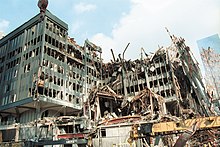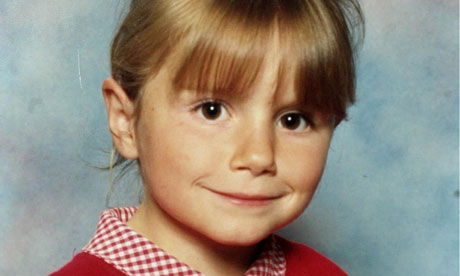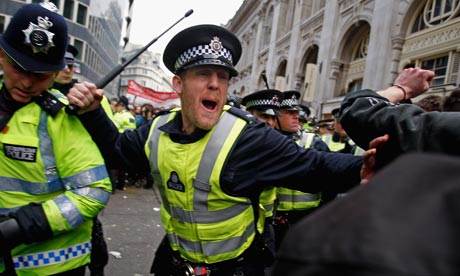 Geologists say fracking wastewater disposal wells in central Arkansas caused an outbreak of thousands of minor earthquakes.
Geologists say fracking wastewater disposal wells in central Arkansas caused an outbreak of thousands of minor earthquakes.
The Arkansas Oil and Gas Commission placed a ban on fracking wastewater wells in the area yesterday. A moratorium on well activity had been in place for months as geologists investigated a possible link between fracking activity and the outbreak of more than 1,200 earthquakes that measured lower than 4.7 in magnitude.
Fracking Operations Cause Thousands of Earthquakes in Arkansas
J&J cuts maximum Tylenol dose to prevent overdoses
 Johnson & Johnson said Thursday that it's reducing the maximum daily dose of its Extra Strength Tylenol pain reliever to lower risk of accidental overdose from acetaminophen, its active ingredient and the top cause of liver failure.
Johnson & Johnson said Thursday that it's reducing the maximum daily dose of its Extra Strength Tylenol pain reliever to lower risk of accidental overdose from acetaminophen, its active ingredient and the top cause of liver failure.
The company's McNeil Consumer Healthcare Division said the change affects Extra Strength Tylenol sold in the U.S. - one of many products in short supply in stores due to a string of recalls.
NJ residents frustrated over 9/11 victims fund
 The head of a fund for people injured in the Sept. 11 attacks on the World Trade Center explained Thursday how they could be eligible for compensation but got an earful from those who said the limitations are too restrictive and seem engineered by detached lawmakers in Washington.
The head of a fund for people injured in the Sept. 11 attacks on the World Trade Center explained Thursday how they could be eligible for compensation but got an earful from those who said the limitations are too restrictive and seem engineered by detached lawmakers in Washington.
Sheila Birnbaum, the New York attorney charged with administering the fund, addressed about 50 first responders and others at a town hall meeting in City Hall two days after a federal review found insufficient evidence linking cancer to Sept. 11 to warrant adding cancer to the list of conditions covered.
NOTW targeted phone of another murdered girl's mother
 Sara Payne, whose eight-year-old daughter Sarah was abducted and murdered in July 2000, has been told by Scotland Yard that they have found evidence to suggest she was targeted by the News of the World's investigator Glenn Mulcaire, who specialised in hacking voicemail.
Sara Payne, whose eight-year-old daughter Sarah was abducted and murdered in July 2000, has been told by Scotland Yard that they have found evidence to suggest she was targeted by the News of the World's investigator Glenn Mulcaire, who specialised in hacking voicemail.
Police had earlier told her correctly that her name was not among those recorded in Mulcaire's notes, but on Tuesday officers from Operation Weeting told her they had found her personal details among the investigator's notes. These had previously been thought to refer to a different target.
Media censorship of war casualties in the US
 Iraq and Afghanistan remain "real" wars in the traditional sense. Thousands of American soldiers have been killed. Tens of thousands have been severely wounded. But images from these "real" wars have been studiously sanitised to the point that a well-informed news consumer could be excused for thinking that their country's latest wars are virtually bloodless.
Iraq and Afghanistan remain "real" wars in the traditional sense. Thousands of American soldiers have been killed. Tens of thousands have been severely wounded. But images from these "real" wars have been studiously sanitised to the point that a well-informed news consumer could be excused for thinking that their country's latest wars are virtually bloodless.
"Pictures [of dead or dying American troops] have rarely been seen in recent years from Iraq and Afghanistan," acknowledged The New York Times in September 2009. "This was not the case during the Vietnam War."
15 Years in Prison For Taping the Cops? How Eavesdropping Laws Are Taking Away Our Best Defense Against Police Brutality

Officers on the scene confiscated and smashed witnesses' cell phones; later, when they were confronted by the media, the police denied trying to destroy videos of the incident.
Microsoft's Use Of Lox-Tax Havens Drives Tax Bill To 7 Percent Of Profit
 Things were rosy in the giant software company's just-ended fiscal fourth quarter, which produced record sales of nearly $17.4 billion, a 30 percent increase in after-tax profit, and a 35 percent gain in earnings per share.
Things were rosy in the giant software company's just-ended fiscal fourth quarter, which produced record sales of nearly $17.4 billion, a 30 percent increase in after-tax profit, and a 35 percent gain in earnings per share.
But for the Internal Revenue Service and foreign tax authorities, things weren't so rosy. Microsoft reported only $445 million in taxes in the U.S. and other foreign countries, just 7 percent of its $6.32 billion in pre-tax profit.
Exxon Mobil Profit Soars 41% on Higher Oil Prices
 Exxon Mobil Corp.'s second-quarter profit jumped 41% on high oil prices and improved refining and marketing results.
Exxon Mobil Corp.'s second-quarter profit jumped 41% on high oil prices and improved refining and marketing results.
Exxon, the world's largest publicly traded oil company by market value, joined rivals ConocoPhillips, BP PLC and Royal Dutch Shell on reporting skyrocketing profits that echoed the record earnings oil companies posted before the financial collapse in 2008, when oil traded above $147 a barrel.
Let's stop assuming the police are on our side
 Can confidence in the Metropolitan police sink any lower? Even before the past few weeks revealed the possibility of their complicity in the News of the World hacking scandal, and the past few months their brutal attitude towards the policing of students and other protesters, there were many who already had reason to mistrust those who claim to be "working together for a safer London".
Can confidence in the Metropolitan police sink any lower? Even before the past few weeks revealed the possibility of their complicity in the News of the World hacking scandal, and the past few months their brutal attitude towards the policing of students and other protesters, there were many who already had reason to mistrust those who claim to be "working together for a safer London".
Page 603 of 1174




































